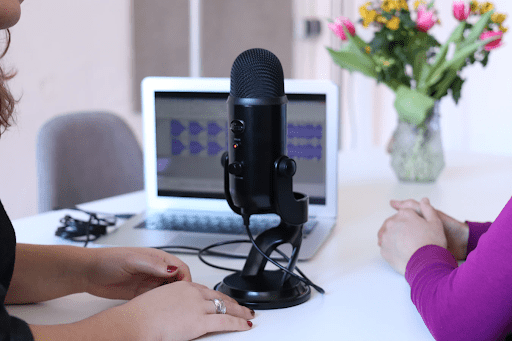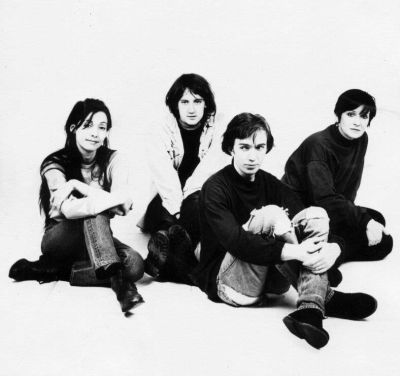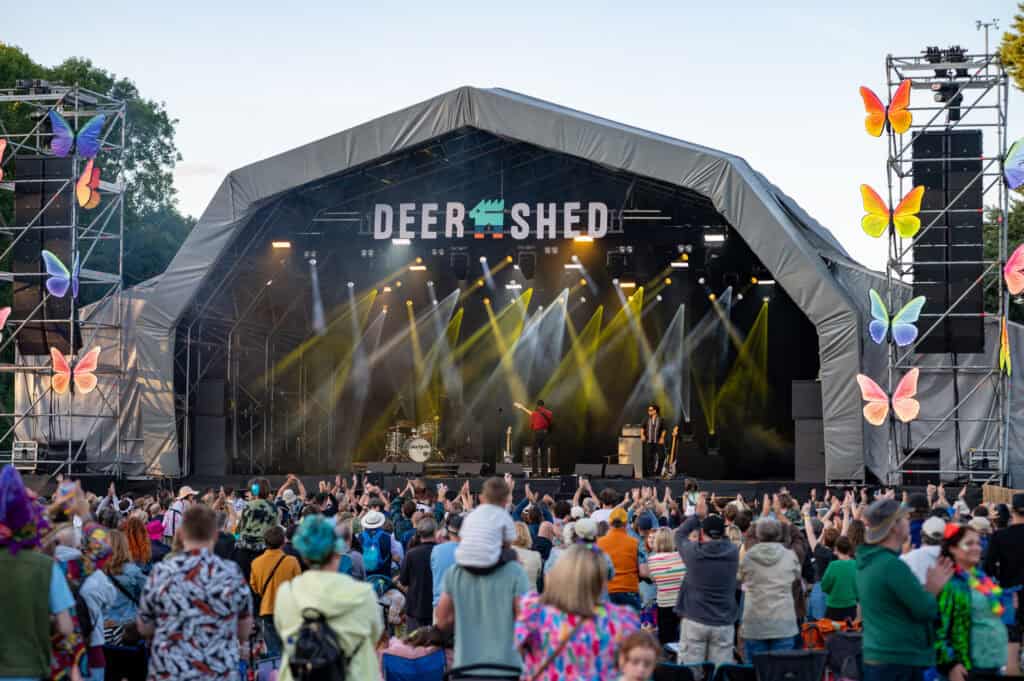Podcasting has become an innovative and fun way for brands or independent music artists to incorporate a passion into providing value to others. The popularity of podcasts has grown drastically in recent years, and with the global pandemic keeping people at home, podcasts have become a great way to connect.

With music being a foundation for bonding and connection, creating a podcast to grow a music career is an excellent option for showcasing your talents to gain more exposure to promote your music business and engage a new fanbase. In addition, you can expand your knowledge base, impart education or instruction to others regarding the music industry, and even earn money through sponsorships.
There is a lot of upfront work that goes into creating and promoting your podcast. Scheduling episodes, collaborating with others if doing interviews, and editing your audio are just a few of the required steps in developing a podcast. While there are multiple ways to begin your podcast, here are some of the essential steps and tips you should take when starting a podcast to grow your music career.
CREATE YOUR PODCAST THEME
The first step to developing an authentic music podcast is knowing exactly how you want to niche down or what area of music you plan to focus on and promote. As a musician, you have a variety of knowledge in the music business, whether assisting other in-home music studio teachers, music teachers at public schools, musicians trying to grow their fanbase, and more.
It is crucial to have a focus area to circle back to with every episode, and since you already know your basis will be in music, you have to decide what your overall theme will be. In order to do that, you should ask yourself some questions:
- Will you focus on a particular music genre?
- Do you plan to interview and collaborate with other musicians?
- Who is your audience?
- What sort of music career do you have that you are working to build?
- What is the main idea that you want listeners to gain value from?
Hopefully, you are already considering all of the options for targeting your audience and what your episodes will entail. In addition, your theme needs to be incorporated across all of your episodes. It also is helpful to have an objective, as in, knowing your end goal – be it more followers, exposure, gaining more musical knowledge, etc.
Creating a logo or podcast cover art will go hand in hand with this step. If you already have a brand logo, this should be a part of whatever cover art you decide to use. Color patterns and fonts are a great way to draw your audience in and make you stand out, so don’t just pick any kind of art, make something unique, attention-grabbing, and something that pertains to your music podcast theme.
Do not worry if you have multiple passions or desire your listeners to gain insight across more than one area. With time your theme and focus may grow and change, but having an initial honed-in theme is the best way to ensure you are reaching your target audience. You also should have a vast knowledge and understanding of it to relay helpful and truthful information.
ESTABLISH YOUR PODCAST EQUIPMENT
Audio hardware and mixing software are necessary investments for creating your own music podcast. However, there are many options for free audio programs to edit that you can begin with when you are just starting. Eventually, you may want to invest in upgraded software.
Other equipment you might consider is a condenser or digital microphone and headphones, as well as a compressor filter for producing quality sound. However, if you are just starting or have a tight budget, you can record easily with your smartphone and headphones until you are able to invest in more upgraded hardware. There are also advantages of using pop filters.
CREATE YOUR PODCAST SCRIPT AND CONTENT
It is helpful to have a script for each episode so that you are as prepared as possible when you record. Keep in mind that you want your audience to be engaged and enjoy themselves as you are putting together your script. Develop a spin or unique way of accomplishing something that you want to share or develop a twist on a podcast that is already being done.
When creating your content, you need to prioritize finding ways to stand out. There are so many music podcasts out there, so why would someone want to listen to yours? One way to do this is by combining your music expertise with another area that you enjoy. For example, if you are a musician who loves to travel, you could create your podcast around music touring and incorporate things like best places to visit for your musical genre, touring logistics, and more.
The steps you take to determine your podcast style and content will help you with your overall theme if you have not already established it.
CREATE AND LICENSE YOUR PODCAST MUSIC
Creating content also entails licensing music for podcasts since you will need intro and outro music that will be recognizable. In addition, depending on the style of music you perform as a musician or the genre of music you want to focus on, your music should also reflect this style.
You can opt to create original tracks for use within your episodes. Just ensure that you obtain the copyrights and register the tracks with a PRO so that someone else cannot use them without licensing them and paying you the proper fees.
Once you have decided upon your music for the intro and outro, you need to create the narration you plan, to introduce and say goodbye for each episode. Again, this is something that, with time, you can change, but pre-recording the narration so that it can be the same across the beginning and end of each podcast is a great way to create familiarity with your listeners.
CREATE YOUR PODCAST SCHEDULE
Since consistency is an important aspect of growing your audience, setting up your podcast schedule is your next step. Before you launch the podcast, you should have at least a few episodes recorded and ready to have your content prepared ahead of time for each episode as you go. Recording episodes way ahead helps to keep you on track as you record going forward so that you do not fall behind in episodes. will
Do you want to launch episodes twice a week, once a week, or twice a month? Your listeners will want to know when to expect new episodes, so taking the time to map out your schedule will set you up for success.
PROMOTE AND ANALYZE YOUR PODCAST
At this point in the game, you are ready to launch your podcast. Promotion and marketing will be the most helpful things for you to build your audience, so utilize your social media channels to create hype around your initial launch of the podcast and encourage people to listen.
You might consider some tactics helpful here, such as creating some sort of call-to-action from fans to get them to listen. Some musicians will do band merchandise giveaways or music-related freebies that people can win if they tune in and provide you with some stellar feedback to get your podcast going.
The success of your podcast depends on your marketing to the right people. If you know your target audience and how to serve them, you can ensure that your podcast will have a significant number of subscribers. Identifying and knowing what your audience is looking for will give you more visibility in the podcast world. You should treat your music podcast as part of your music career since it will be a reliable way to increase your fanbase and grow your business.
Words: Nicole McCray





